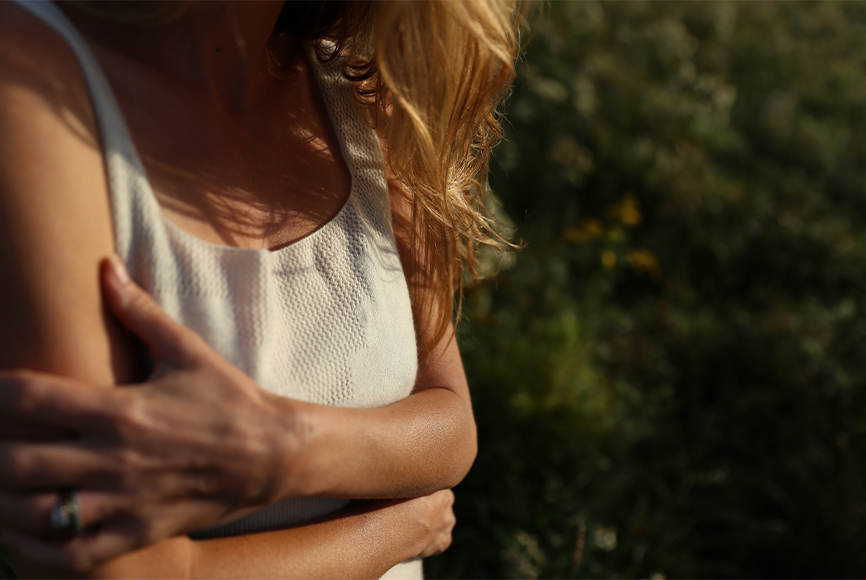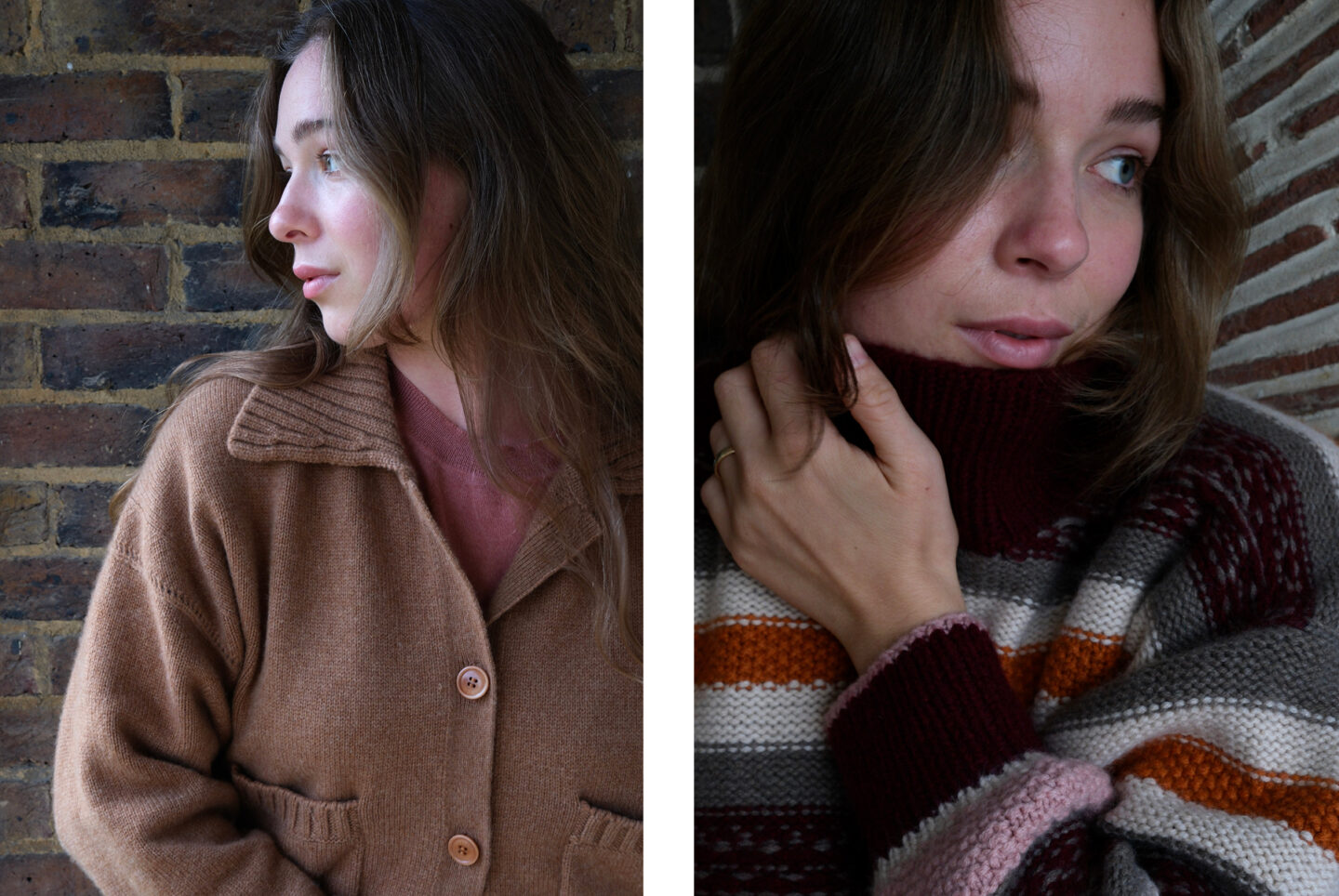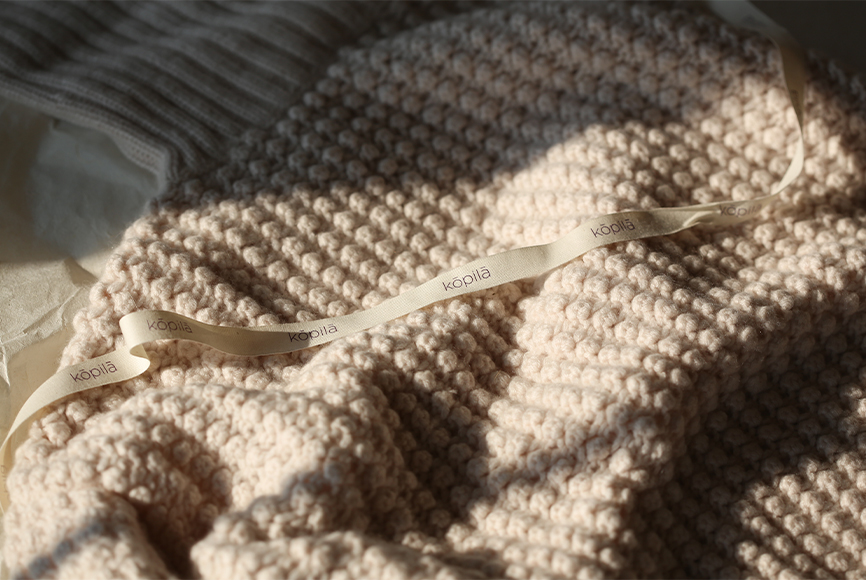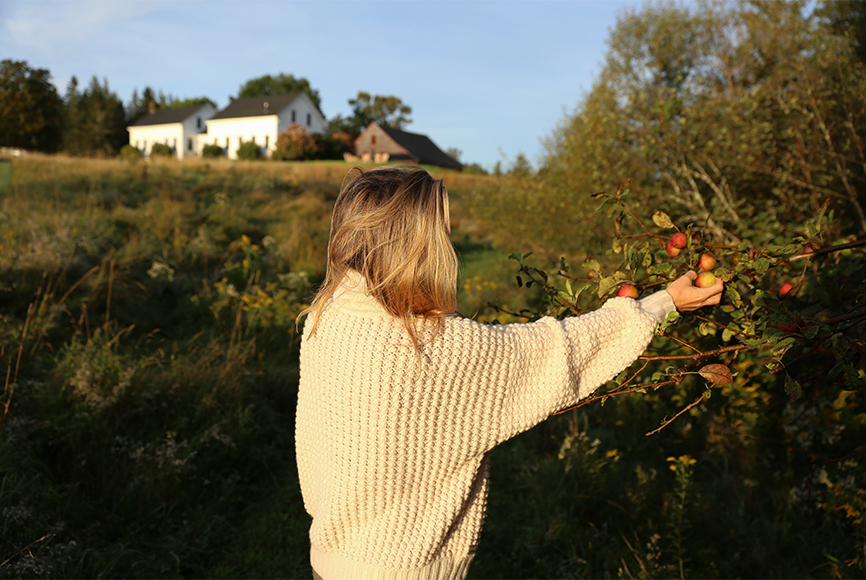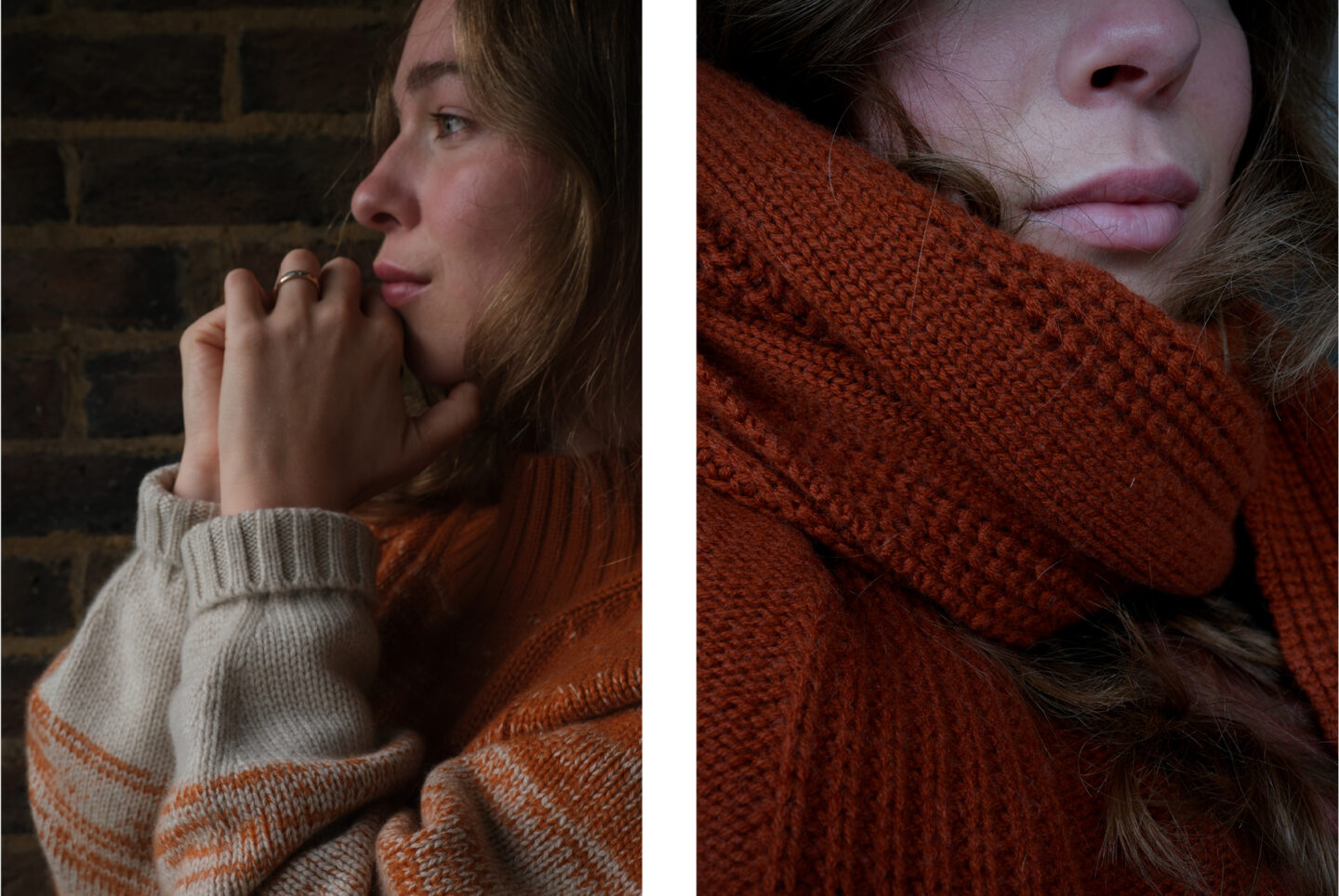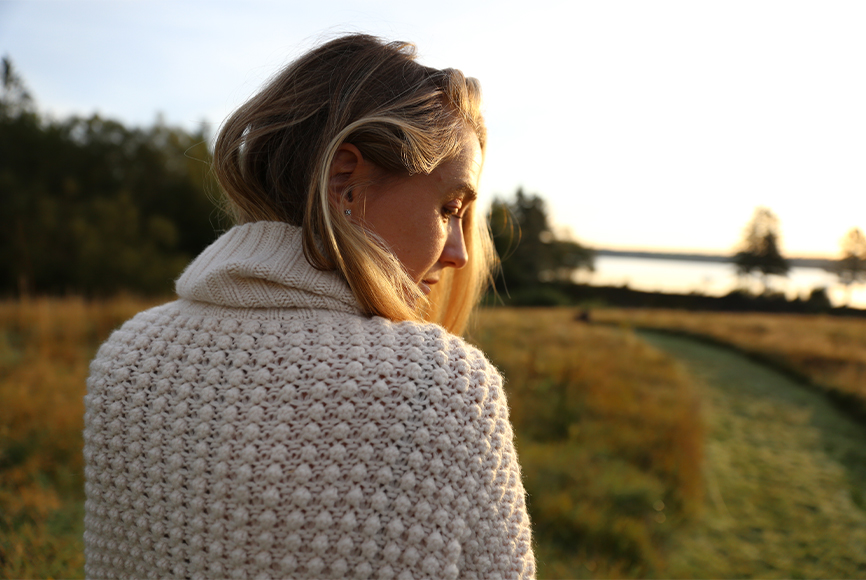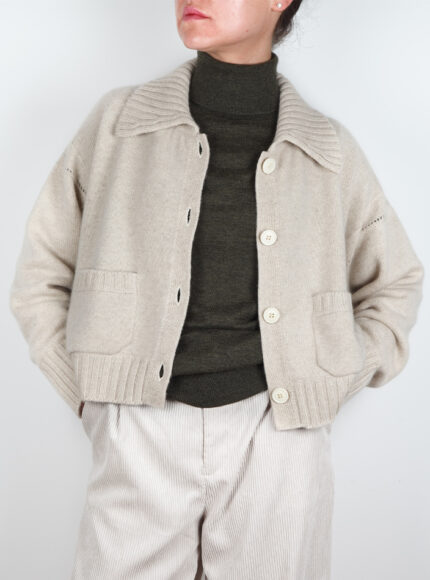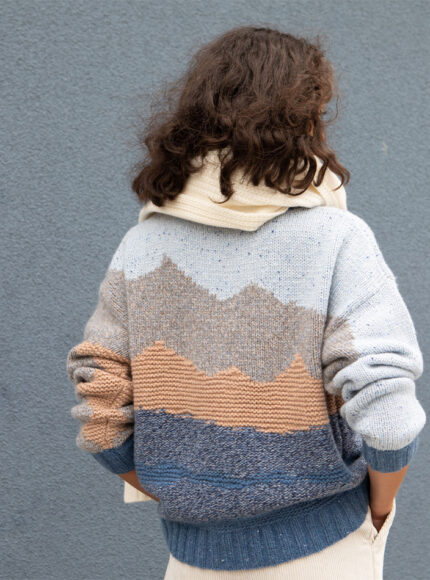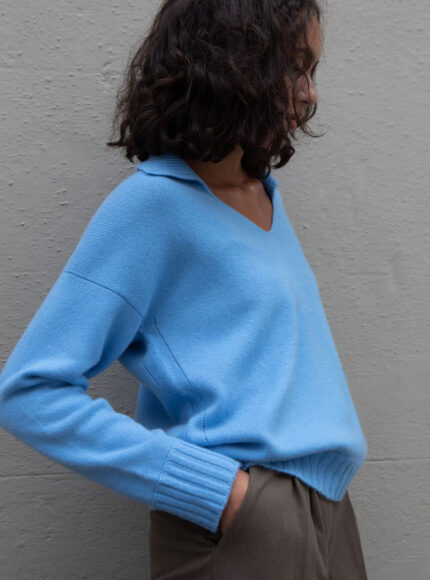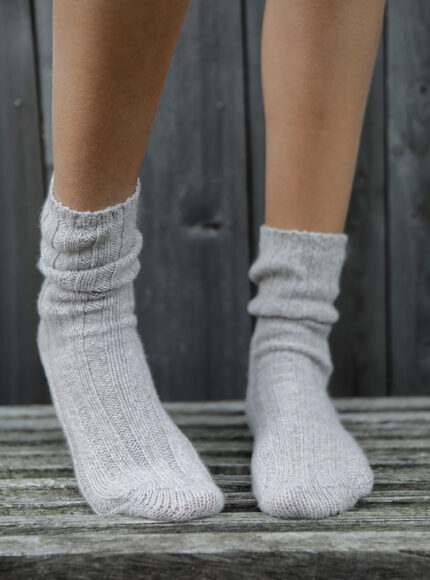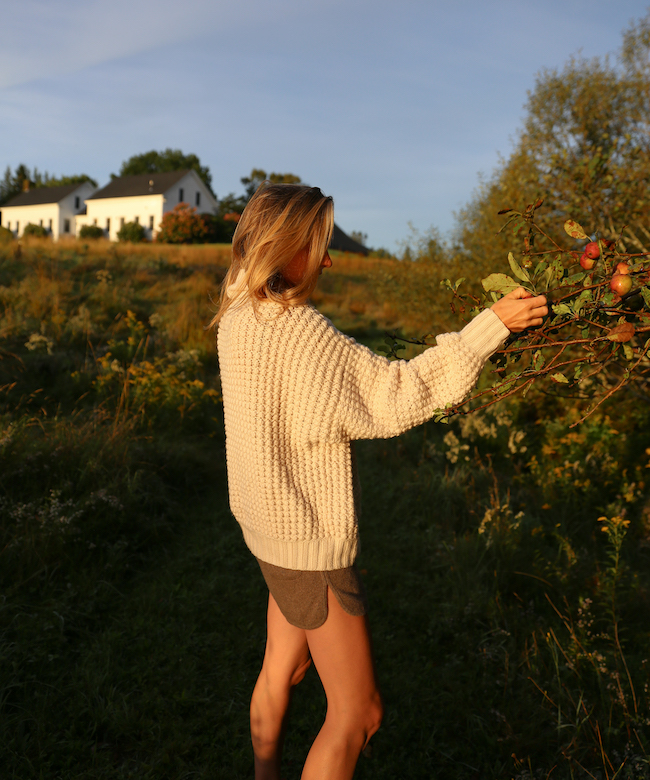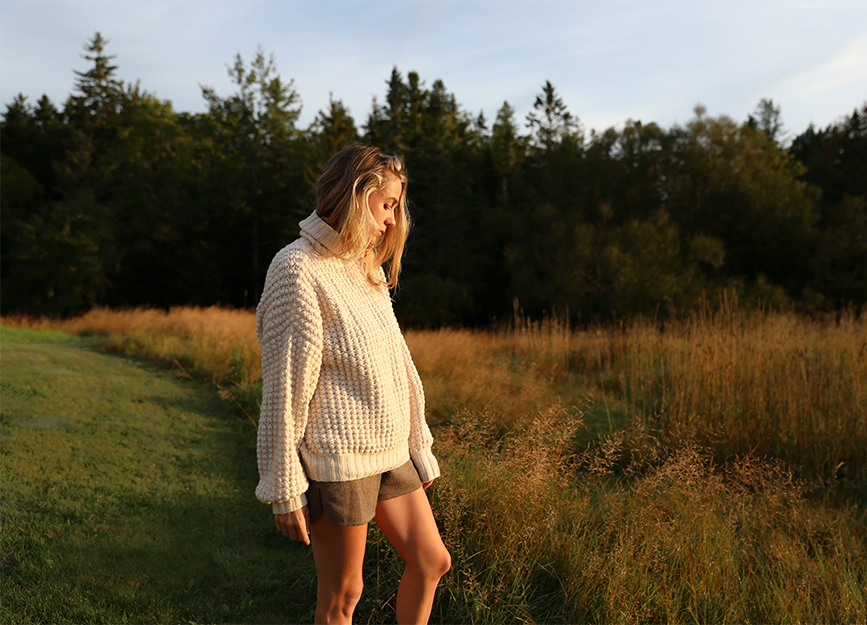

@corahilts wearing @kopila_cashmere
@corahilts wearing @kopila_cashmere


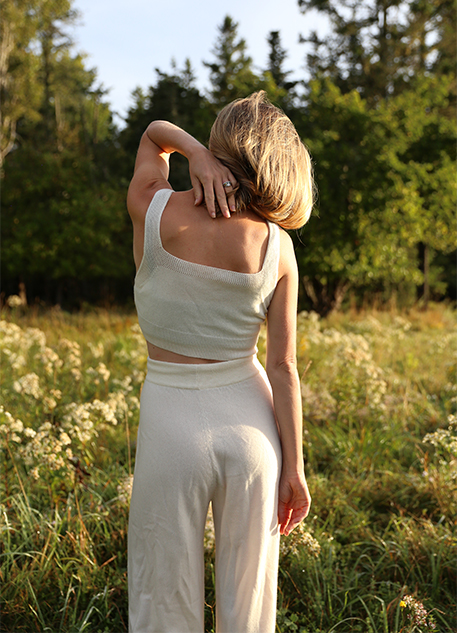

@corahilts wearing @kopila_cashmere
Fashion
Meet Kōpilā – Our New Favourite Conscious Cashmere Line
Meet Kōpilā our new-found one-stop brand for sustainable cashmere, Kōpilā make not only stunning pieces but ensure that everything they do considers people and the planet at every stage of their creative process. In this editorial we share why we love Kōpilā so much as well as our top picks and not only that, we share an exclusive interview with the Co-Founder and Creative Director of Kōpilā herself, Pippa Anderson. Discover how to style Kōpilā for fall in our latest editorial here.
If you’d like to market your brand with us, email taylorb@revenvert.com.
Kōpilā Cashmere –
Kōpilā is a Nepali name that means ‘flower bud’ and speaks to the vulnerability of new beginnings. Their journey begins with the vision of a better, kinder world in mind. The brand was born out of a desire to bring conscious cashmere to consumers that is made from luxury raw materials by artisanal craftmanship. The result is a range that is timeless yet relevant, that showcases incredible artisan skills. These are pieces to be worn, loved and treasured for time to come.
Kōpilā is proud to partner with The Good Cashmere Standard (R) by AbTF, so you can trust they have full visibility of the journey of your pieces. They only use nontoxic dyes – an issue we are super passionate about, and they offer a completely dye-free home wear collection! The brand also has a zero plastic packaging policy, and they use biodegradable corn bags, paper parcel tape, handmade lokta tissue paper, and the garment labels are even made from organic cotton.
“We believe sustainability is about making respectful, responsible choices, so we have founded our brand making the best possible choices from day one, bringing you luxury cashmere with a conscience.”
What makes the brand so special -
Kōpilā not only adheres to their many sustainable values such as using certified cashmere, non-toxic dyes and their zero plastic policy. Kōpilā also use the UN’s Sustainable Development Goals as a guideline to inform their sustainability strategy. These goals are a fundamental blueprint for anyone to follow when working towards a peaceful and healthy planet. By being influenced by this larger goal Kōpila show they are dedicated to the long term vision for this planet and hold their business to the highest standards. Discover more about Kōpilā’s own sustainability pillars here.
Interview with the founder of Kōpilā -
Can you tell us a bit about your background before starting Kopila – did you come from fashion or was the line born out of another pathway?
Yes, I have a career long fashion background, however I’m also a certified functional health coach having retrained 5 years ago – and it’s the combination of the learnings from these two seemingly opposing worlds that have inspired the ethos behind Kopila.
As a knitwear designer, I’ve worked across premium and luxury British and International brands with cashmere as my speciality. It’s always been a role I’ve absolutely adored and felt so lucky to have. But eight or so years ago I began feeling uneasy about the impact of the fashion industry on the planet and realised I, as a designer was contributing to that – which didn’t sit comfortably. I’d also developed a chronic illness so l decided to leave fashion and retrained as a functional health coach to help my own recovery and support others in theirs. This was where I discovered the Impact and interconnectedness of our modern lifestyle not only on our health, but also on our entire planet. It was such a life changing and inspiring experience to be immersed in the world of paradigm challenging people. So I took their energy and enthusiasm and my new found knowledge and found a way to apply it all to the career I love so much and return to design – not as a passive part of the problem, but hopefully one small active part of the solution.
Then, as the universe has a habit of doing, I was lucky enough to be introduced to my now partners at Kopila. We all share not only a love of our craft, and a respect for the people who bring our collection to life, but also a desire to tread lightly in this world – together we have created Kopila.
What does “cashmere with a conscience” mean to you?
It’s always been important to us that our sustainability journey has integrity, we really believe it’s not good enough to just certify your yarn. Our knitwear production is fully traceable from the fibre producer into our customers hands meaning our customer can have complete peace of mind that we have done what we can to protect people and nature throughout their garments journey:
๏ OUR FIBRE: Our garments are made using premium royal cashmere yarns certified to The Good Cashmere Standard (R) by AbTF who promote animal welfare, improving the working conditions of farmers and farm workers as well as protecting the environment.
๏ OUR YARN: We only use certified non toxic dyes and additionally offer a completely un-dyed home wear range.
๏ OUR GARMENT PRODUCTION: is SEDEX approved and 70% of our garment factories workforce are women. Kopila additionally support the traditional skills and techniques of hand knitting.
๏ OUR TRIMS AND LABELS: from buttons to labelling are sustainably sourced. Even our labels and ribbon are organic cotton or FSC paper.
๏ OUR PACKAGING: We additionally support traditional skills and techniques in the use of handmade sustainable Lokta tissue paper which is indigenous to Nepal. Our remaining packaging is made from recycled cardboard and paper, and we use corn starch bags which are biodegradable.
๏ OUR DELIVERY: We have chosen our delivery partner because of their commitment to carbon insetting and pay additional premiums for our shipping for sustainable aviation fuel.
๏ OUR POST CONSUMER CARE: At Kopila we believe that sustainability is a continuing journey and are currently sourcing partners to support our post consumer care – for now we encourage our customers to wear, care, repair, pass on or recycle:
wear – at least 50 times please, hopefully longer!
care – to prolong the life of each garment, we recommend:- Storing the garment flat in a box or bag with an eco friendly moth repellant.- Using a de-pilling comb regularly to minimise pilling build up and keep the garment looking new. – Airing the garment and spot cleaning also means the garment needs washing less often. When cleaning we recommend using a steam cleaner at home for the lowest environmental impact.
repair – either invisibly or consider using a textile artist to creatively mend your garment.
pass on – to future generations, friends or re-sale stores.
recycle – if the garment really has come to he end of its lifecycle we
ask our customer to recycle with a cashmere recycling company or
textile bank.
Can you tell us about your The Good Cashmere Standard® certification?
The Good Cashmere Standard®, promotes animal welfare, improving the working conditions of farmers and farm workers as well as protecting the environment. They specify a clear and comprehensive set of criteria for sustainable cashmere production. Regular checks are performed by independent auditors in order to monitor compliance with these criteria. However The Good Cashmere Standard® doesn’t certify the quality of the yarn, and you can get a wide range of qualities under the certification – Kopila’s cashmere is a superior royal cashmere quality which is spun from premium quality raw material with an average micron of 15.2 – 15.8um giving an extraordinarily soft and voluminous yet lightweight luxury yarn which is what makes our garments so special.
For anyone concerned about animal welfare in the cashmere industry, can you go into more detail on their treatment?
As a proud partner of The Good Cashmere Standard® by AbTF, we only source sustainable cashmere which it certifies comes from goats that have been treated responsibly. Animal welfare is at the heart of The Good Cashmere Standard®, which is why it incorporates the Five Freedoms as defined by the Farm Animal Welfare Council, such as no animal should be subjected to hunger, thirst, discomfort, pain, injury or disease. Animals must also have the freedom to express normal behaviour and live a life free from fear and distress.
The Good Cashmere Standard® contains clear and comprehensive
criteria regarding:
feed, water and nutrition
indoor/outdoor living environment
health, herd, breeding and kid management physical alterations
combing and shearing
handling and transport
euthanasia and slaughter
And what about the environmental impact of the goats – How are they treading more lightly on the earth in the way you are working with them?
The Good Cashmere Standard® have strict regulations on the protection of the environment and biodiversity. One of its key principles is that goat farming should have no negative impact on the environment, especially on the land and biodiversity. By having yarn certified to The Good Cashmere Standard® our customer can be assured that we are doing the best we can to minimise the environmental impact in the farming of the goats.
We are very concerned with toxins in dyes and were thrilled to see you guys work with all non-toxic dyeing…can you tell us a bit about why this was important to you and what your dyes have in them to make them gentler on people and planet?
First hand I know the impact of toxins from our environment on our health, but also the impact on the planet and our soil. So it was important to us from the start to make sure our dyes were certified by OEKO-TEX (R) STANDARD 100 and to offer a completely dye-free home wear range. All of our yarns and buttons are dyed using non-toxic dyes and are approved and certified to OEKO-TEX (R) STANDARD 100, this is an internationally accepted standard and means the dyes don’t contain any harmful substances, are completely safe for human touch and have reduced chemical impact. Our dye-free range comes in natural tones that are blended from the three natural cashmere goat colours giving the softest neutrals from creamy white to earthy brown, and using only the essential processes of blending, carding and spinning, so they are pollutant free and fully biodegradable cradle to cradle. We also offer a few dye-free day wear pieces and hope to expand that offer in the coming seasons so watch this space!
Your yarn supplier and garment factory both have ISO14001 certification – what does this mean?
ISO14001 is an internationally-agreed standard that sets out the requirements for an environmental management system. It helps organisations improve their environmental performance through more efficient use of resources and reduction of waste, covering air pollution, water and sewage issues, waste management, soil contamination, climate change mitigation and adaptation, and resource use and efficiency. Which ultimately improves resource efficiency, reduces waste and improves overall environmental impact.
How do you design with circularity in mind?
From our yarn to our corozo buttons, our labelling and our packaging, 99% of our materials are recyclable or compostable. We know from farm to end of life our garments won’t harm people or the planet. We also minimise waste as much as possible, we make our garments in small batches, and any left over yarn is used for the following seasons sampling. By using such a specialist factory and skilled artisans we also keep our sampling to an absolute minimum and all samples are sold – No garments or yarn are wasted. Our knitwear is also designed with longevity in mind, made from a premium long staple fibre and knitted with a tight tension to minimise pilling and we purposely create contemporary and lightweight garments that transcend the seasons so our customer can re-wear again and again.
And what other steps have you taken with your sustainability journey that you feel are unique to Kopila?
Culture is one of the pillars of sustainable development, so cannot be missing from our sustainability strategy, Nepal and the cultural heritage of its communities are celebrated and integrated into our business wherever possible. Alongside supporting the tradition of hand knitting on needles, We are also using Lokta paper packaging which is a traditional handmade paper indigenous to Nepal. It’s made from the bark of Lokta trees – which is non-wood forest that conserves biodiversity, and is fully sustainable. Using this paper supports local communities in the manufacture of the paper and celebrates the use of traditional techniques Kopila is known for. We are also developing handmade delivery boxes in Lokta paper for our AW24 collection!
Can you tell us a bit about the home of your knitwear, Nepal, and why this place was special to you?
Nepal is special to us as it is home to the artisans that craft our pieces – without whom we wouldn’t exist. So as a thank you to their skills, care and patience our AW23 colour palettes, patterns and textures are inspired by Nepal: from the vibrancy of Kathmandu and Nepals traditional dhaka textiles to the sunsets over the Himalayas and the quiet waters of Pokhara’s lake.
Can you tell us a bit about the artisans you work with and the approach they take to making Kopila products by hand?
Knitting is a traditional craft in Nepal and an important part of Nepalese culture. We celebrate our artisans expertise and support this tradition’s continuation with our hand-knitted garments. These are knitted by hand on needles and can take up to 15 days to knit. All of our garments are also hand finished with great skill and care, meaning all of the details are paid attention to – if you look inside our cuffs no seams are evident, these have been finished invisibly by hand. Even our machine knits are created on hand-operated knitting machines. They say when a cake is baked with love it tastes different! – we really believe our garments feel so beautiful because they have been made with great skill, care and pride. When you hold a Kopila garment we really believe you can feel the difference.
How have you thought about the aesthetic of Kopila when it comes to longevity?
Our aesthetic is very important to us and we wanted our garments to be not just sustainable but beautiful too as when garments touch your heart you want to look after them and keep them forever. We have designed the range to have a feminine feel to the silhouettes and detailing , the pieces are contemporary but wont look out of place in years to come – but most importantly they are individually beautiful, considered pieces that we hope will find a special place in our customers hearts and will be loved and treasured forever.
Finally, what do you hope the Kopila consumer knows about the line’s commitments to community, environment and sustainability?
I hope our customer trusts we have done as much as we can before launching our brand and as our sustainability promise states: We will continue that journey. As a small business we promise to act responsibly with transparency and integrity as we grow, continually expanding and developing our sustainability intentions towards a better, kinder world.
Our favourite pieces as worn by the REV team –
“I feel so chic in all the Kōpilā pieces I have and already know I will wear them again and again – regardless of the season. They are all so timeless and can be styled so effortlessly – with jeans, on top of a dress, or skirt – you name it!”
– Taylor Blair-Dubuis, REV’s Head of Brand Partnerships
Taylor’s Picks –
no 70 – cropped collared jacket in Haystack and Eco Alabaster (un-dyed).
no 61 – chunky dip dye effect sweater in Dune & Eco Smoke.
no 75 – hand knitted textured Winter Stripe jumper.
no 59 – simple crew in Velvet Pink.
Cora’s Picks –
no 87 – bobble texture handknitted sweater in Feather.
no 32 – un-dyed bralet in Eco Paper.
no 85 – un-dyed pyjama pants in Eco Paper.
no 42 – un-dyed robe in Eco Alabaster.
no 9 – un-dyed bralet in Eco walnut.
no 41 – un-dyed shorts in Eco Walnut.



















